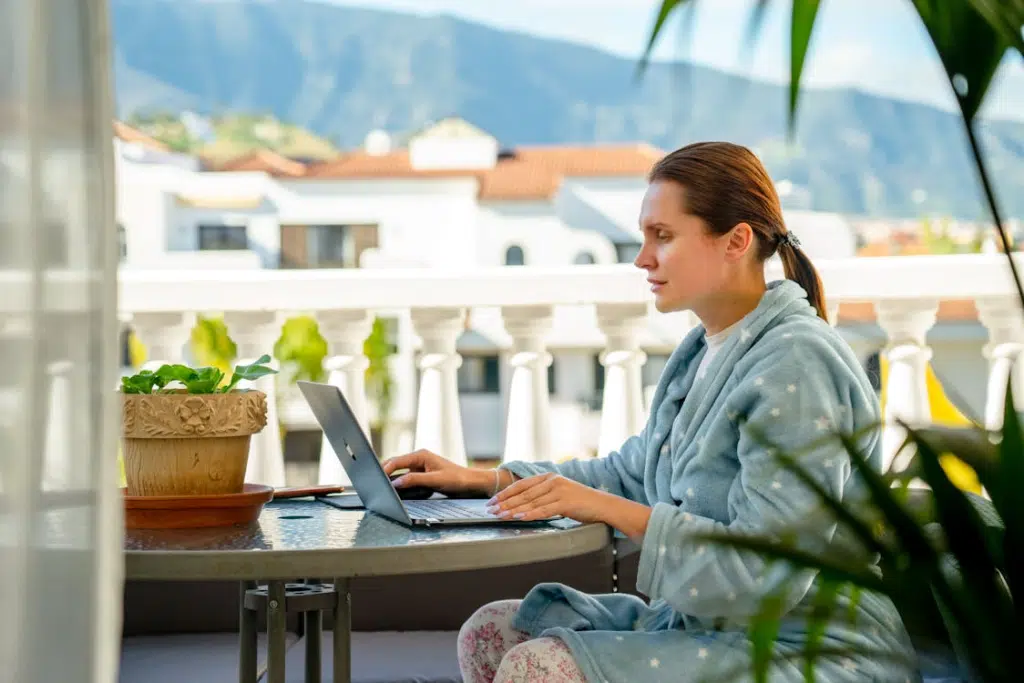How Minimalism Helps You Live a More Focused Life
Lily Carter August 6, 2025
In a world full of distractions, clutter, and constant demands for your attention, it’s easy to feel overwhelmed. Minimalism, a lifestyle choice that emphasizes simplicity and removing excess, offers a solution to this modern dilemma. By focusing on what truly matters and eliminating unnecessary distractions, minimalism can help you live a more focused and intentional life. In this article, we explore how minimalism contributes to mental clarity, enhances focus, and helps you prioritize what’s most important in your life.

What is Minimalism?
Minimalism is about more than just decluttering your physical space; it’s a mindset that encourages intentional living and prioritizing what adds value to your life. At its core, minimalism is about eliminating distractions—whether it’s physical possessions, digital clutter, or time spent on unimportant activities—to make room for the things that matter most.
- Simplicity Over Excess: Minimalism encourages you to focus on quality rather than quantity. This could mean owning fewer but more meaningful possessions or dedicating your time to more fulfilling experiences rather than wasting it on trivial pursuits.
- Intentional Living: With minimalism, you make conscious decisions about what you bring into your life. Every choice you make—whether it’s about possessions, activities, or relationships—is intentional and aligned with your values.
For more on minimalism, see Psychology Today’s article on The Power of Minimalism.
How Minimalism Improves Focus
1. Reduces Distractions and Clutter
One of the primary benefits of minimalism is the reduction of distractions. When your physical and digital spaces are cluttered, your brain has to work harder to focus and process information. Minimalism encourages you to declutter your environment, which leads to fewer distractions and a clearer mind.
- Clean and Organized Spaces: When your space is organized and free from clutter, you can focus more effectively on the tasks at hand, whether at home or at work. A clean environment fosters mental clarity and encourages productivity.
- Digital Decluttering: Digital clutter—such as excess emails, apps, and notifications—can also be overwhelming. Minimalism helps you streamline your digital life, making it easier to stay focused on what’s important.
For more on decluttering your digital life, read Lifehack’s article on Digital Minimalism.
2. Promotes Prioritization of What Matters Most
Minimalism encourages you to focus on your most important goals and values, allowing you to prioritize activities that align with your purpose. When you remove the distractions of material possessions and time-wasting activities, you create space for more meaningful pursuits.
- Aligning with Values: Minimalism helps you identify what truly matters to you, whether it’s spending time with loved ones, advancing your career, or pursuing personal growth. With these priorities clearly defined, you can direct your energy and attention toward achieving them.
- Focus on Purposeful Activities: Instead of spreading yourself thin across many tasks and commitments, minimalism encourages you to focus on fewer but more impactful activities, helping you direct your time and energy where it counts.
For more on prioritization and purposeful living, see Forbes’ article on How to Prioritize What Matters Most.
3. Helps You Say No to Unnecessary Commitments
Minimalism not only applies to possessions but also to how you spend your time. By adopting a minimalist approach, you become more intentional about where and how you invest your energy. This helps you say no to commitments, activities, and relationships that do not align with your priorities.
- Time Management: Minimalism encourages you to evaluate your schedule and remove activities that aren’t contributing to your personal or professional goals. This ensures that you have more time for focused work, relaxation, or personal growth.
- Better Work-Life Balance: By saying no to unimportant commitments, you can create a healthier balance between work and personal life. This balance allows you to dedicate more time to the things that truly matter, which enhances focus and productivity.
For more on time management and setting boundaries, see MindTools’ article on Time Management for Minimalists.
4. Encourages Mindful Consumption
Minimalism encourages mindful consumption—whether it’s in terms of buying products, consuming media, or spending your time. Instead of mindlessly acquiring things or engaging in activities that drain your energy, minimalism teaches you to make conscious decisions that align with your values and needs.
- Quality Over Quantity: Minimalists often prioritize purchasing high-quality, durable items rather than accumulating possessions. This shift in mindset reduces the distractions of material goods and allows you to focus on what’s truly necessary.
- Mindful Media Consumption: Minimalism also applies to your digital habits. By consuming less media, such as mindless scrolling through social media or binge-watching TV, you free up time to engage in more meaningful activities and improve mental clarity.
For more on mindful consumption, read Psychology Today’s article on the Psychology of Minimalism.
5. Improves Mental Clarity and Emotional Balance
By removing excess possessions, commitments, and distractions, minimalism helps clear mental and emotional clutter. When your environment is simplified, it’s easier to think clearly and maintain emotional balance.
- Clarity and Focus: With fewer distractions, your mind can focus on the present moment, which improves mental clarity and decision-making. This heightened clarity allows you to engage in deeper, more focused thinking, whether you’re working on a project or pursuing personal growth.
- Emotional Well-Being: Minimalism fosters emotional balance by encouraging you to let go of negative attachments, whether they’re to material things or to people and activities that no longer serve you.
For more on emotional balance through minimalism, see The Minimalists’ article on How Minimalism Leads to Happiness.
How to Start Embracing Minimalism in Your Life
Embracing minimalism doesn’t require drastic changes overnight. Instead, it’s about making small, intentional changes that help you live a more focused and meaningful life. Here are some tips to get started:
- Declutter Your Physical Space
Begin by simplifying your environment. Start with one room or area of your home, and gradually reduce clutter by donating or discarding items that no longer serve a purpose. - Streamline Your Digital Life
Declutter your digital space by organizing files, unsubscribing from unnecessary emails, and limiting your use of social media. Use tools like digital calendars and task management apps to stay organized. - Prioritize What Matters Most
Take time to reflect on your values and goals. By focusing on the things that truly matter to you, you can eliminate distractions and direct your energy toward meaningful activities. - Set Boundaries
Learn to say no to unimportant commitments. By creating boundaries, you can protect your time and energy for what aligns with your goals and values. - Adopt Mindful Consumption
Make more conscious decisions about what you purchase and consume, whether it’s physical items, media, or time spent with others. Focus on quality and value over quantity.
For more tips on embracing minimalism, check out The Minimalists’ 30-Day Minimalism Challenge.
Conclusion: Living a Focused Life Through Minimalism
Minimalism is more than just decluttering your home—it’s about creating a life that aligns with your values, frees you from distractions, and promotes focus and clarity. By embracing minimalism, you simplify your environment, prioritize your time, and reduce stress, which leads to improved mental clarity and emotional balance. Whether you’re starting with your physical space, digital habits, or time management, adopting minimalism will help you live a more focused, intentional life. Start small, and gradually make minimalist choices that will have a lasting impact on your mental well-being.
References:
- Psychology Today. (2020). The Power of Minimalism for a Better Life. Retrieved from https://www.psychologytoday.com/us/articles/2021/04/the-power-of-minimalism-for-a-better-life
- Forbes. (2021). How Minimalism Improves Mental Clarity and Focus. Retrieved from https://www.forbes.com/sites/forbeshumanresourcescouncil/2021/03/01/how-minimalism-improves-mental-clarity-and-focus/
- MindTools. (2021). Digital Minimalism for Better Focus. Retrieved from https://www.mindtools.com/pages/article/newHTE_90.htm
- The Minimalists. (2020). Minimalism and Happiness. Retrieved from https://www.theminimalists.com/







